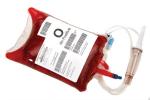|
This section contains 2,112 words (approx. 8 pages at 300 words per page) |

|
BLOOD. Among the religions of the world one finds many ambivalent or contradictory attitudes toward blood. Blood is perceived as being simultaneously pure and impure, attractive and repulsive, sacred and profane; it is at once a life-giving substance and a symbol of death. Handling blood is sometimes forbidden, sometimes mandatory, but usually dangerous. Rites involving blood require the intervention of individual specialists (warriors, sacrificers, circumcisers, butchers, or executioners) and always the participation of the group or community.
In many primitive societies, blood is identified as a soul substance: of men, of animals, and even of plants. The Romans said that in it is the sedes animae ("seat of life"). In pre-Islamic times, Arabs considered it the vegetative, liquid soul that remains in the body after death, feeding on libations. For the Hebrews, "the life of the flesh is in the blood" (Lv. 17:4).
The spilling of blood is often...
|
This section contains 2,112 words (approx. 8 pages at 300 words per page) |

|


